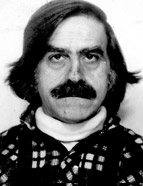

The pretext lay in how Saraiva viewed and conceptualised the 1968 Paris uprising, shortly to become a large-scale upheaval of citizens and workers that would have a worldwide impact. Saraiva’s work, scarcely more than an opuscule, connected the account of his direct experience of those unprecedented events to an interpretation grounded on a critical view of the industrialist model and, therefore, of bourgeois civilisation, in both the liberal and Marxist structures that tutored the so-called “popular democracies” in Eastern Europe.
The May 68 protests and their initial anarchic demands, experienced with adolescent enthusiasm by Saraiva – in France he felt like an outcast, a métèque and a pale shadow of the image that had characterised him in his home country – were to a large extent in keeping with his recent Marcusian critical options and his very premature libertarian pedagogical conceptions, patent in his rejection of hierarchy and “diplomacracy”.
In fact, from a rather heterodox Marxism coupled with the afore-mentioned outbursts of conjunctural youthful radicalism, according to his compact political and ideological autobiography of 1983 (Dicionário Crítico...[Critical Dictionary…] “Prólogo da edição de 1984”, [Prologue to the 1984 edition] reedited in 1996), over a twenty year span, since the year of 1963, Saraiva had rapidly evolved towards a position verging on critical theory. Critical in the sense of any theory that globally contests a historical order. He therefore adopted the ideology of the young humanist and Hegelian Marx and also held Gramsci, the dissident Italian theoretician of Stalin’s vulgata, as a reference. In other words, Saraiva was guided by a diffuse cultural Marxism which overshadowed the social economic paradigm and the above-mentioned driving force of the proletariat in history.
In the meantime, Saraiva expressed and consolidated his true and definitive world vision, one he regarded as essentially liberal. In the above-mentioned prologue, he not only theoretically clarifies his seemingly contradictory prior “liberal Marxism”, but also speculates on the slow autonomization process with regard to the materialistic strand of the same doctrine. Considering the explanation offered therein as to his adoption of Marx’s theory and his later Soviet political version, resulting from his ignorance of the effective nature of Stalin’s regime, such a commitment was merely an equivocal pragmatic option imposed by the Portuguese social and political climate and the urgency in fighting against Salazar’s regime.
